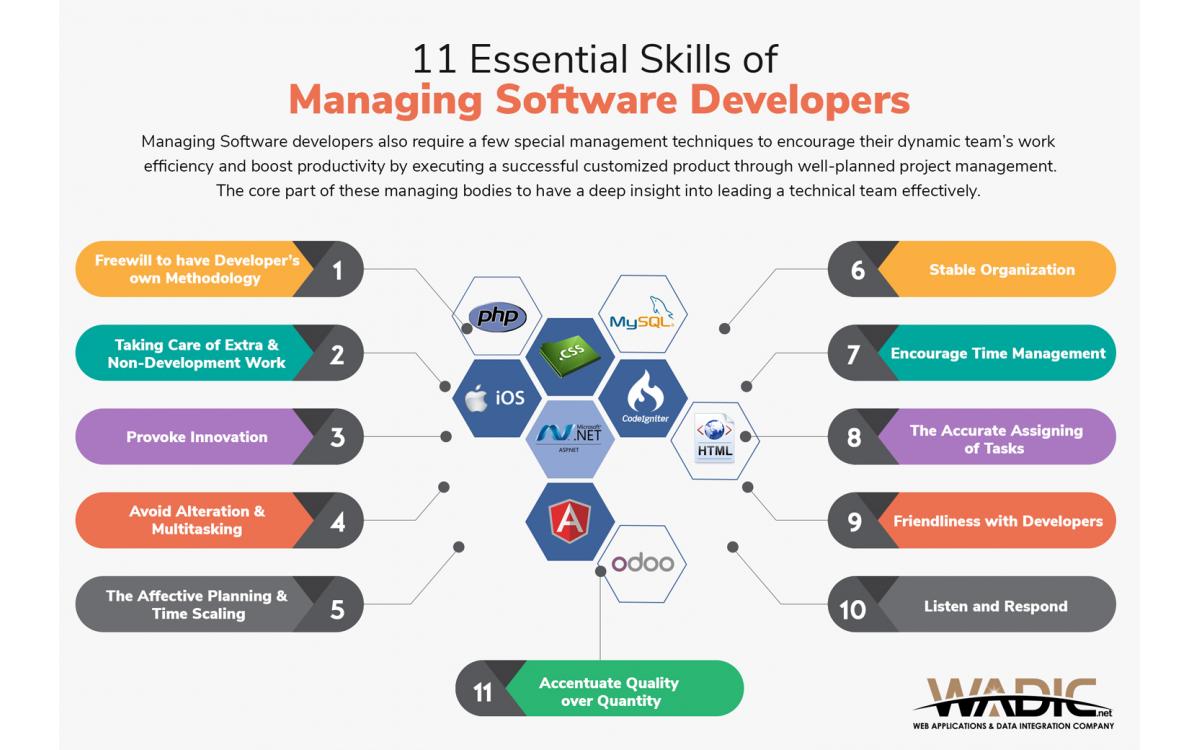Software developer apprenticeship no experience – Embark on an extraordinary journey into the world of software development with our comprehensive guide to Software Developer Apprenticeship programs designed for those with no prior experience. Discover the path to a fulfilling career in tech, bridging the gap between academic knowledge and industry-specific expertise.
Our in-depth exploration delves into the benefits, eligibility criteria, program structure, mentorship opportunities, and industry trends that shape these apprenticeships. Get ready to unlock your potential and transform your passion for technology into a thriving career.
Definition and Overview
A software developer apprenticeship program with no experience requirement is a structured training program designed to equip individuals with the skills and knowledge necessary to become software developers, even if they lack prior experience in the field.
These programs typically involve a combination of on-the-job training, classroom instruction, and mentorship. The duration of these programs can vary, but they typically last for one to two years.
Organizations Offering Apprenticeships
Several organizations offer software developer apprenticeship programs with no experience requirement. Some examples include:
- Microsoft
- IBM
- Apple
- Amazon
Benefits for Individuals
Participating in a software developer apprenticeship program offers numerous advantages for individuals seeking to establish a career in the tech industry. These programs provide a unique blend of practical experience, professional networking opportunities, and financial compensation, enabling participants to gain valuable skills and advance their careers.
One of the primary benefits of apprenticeship programs is the opportunity to gain hands-on experience in a real-world work environment. Apprentices are typically assigned to work on specific projects alongside experienced developers, allowing them to apply their knowledge and skills in a practical setting.
This practical experience is invaluable for building a strong foundation in software development and preparing apprentices for success in their future roles.
Career Advancement Opportunities
Apprenticeship programs also provide a clear pathway for career advancement. Many companies offer structured training programs and mentorship opportunities to help apprentices develop their skills and advance within the organization. Statistics show that a significant percentage of apprenticeship graduates go on to secure full-time positions with their sponsoring companies or find employment in other reputable tech firms.
Testimonials
Numerous individuals have shared their success stories after completing software developer apprenticeship programs. Here’s a testimonial from a recent graduate:
“The apprenticeship program provided me with the opportunity to work on real-world projects and gain valuable experience. I was able to learn from experienced developers and build a network of industry professionals. After completing the program, I was offered a full-time position as a software engineer, and I’m now working on exciting projects that are making a difference.”
Skills and Knowledge Acquired

Software developer apprenticeship programs provide a comprehensive learning experience that equips individuals with the technical skills and knowledge necessary to succeed in the industry. These programs bridge the gap between academic knowledge and industry-specific expertise, ensuring that apprentices are well-prepared for entry-level software developer positions.
Technical Skills and Knowledge
Apprenticeship programs typically cover a wide range of technical skills and knowledge, including:
- Programming languages (e.g., Java, Python, C++)
- Software development tools (e.g., IDEs, version control systems)
- Project management methodologies (e.g., Agile, Scrum)
- Software design patterns
- Database management systems
- Cloud computing platforms
- Testing and debugging techniques
Bridging the Gap
Apprenticeship programs provide a practical and hands-on learning experience that complements academic knowledge. By working on real-world projects under the guidance of experienced mentors, apprentices gain valuable industry experience and develop the skills and knowledge necessary to excel in the field.
Skills Comparison
The following table compares the skills acquired in an apprenticeship program to those required for entry-level software developer positions:
| Skill | Apprenticeship Program | Entry-Level Position |
|---|---|---|
| Programming Languages | Java, Python, C++ | Java, Python, C++ |
| Software Development Tools | IDEs, version control systems | IDEs, version control systems |
| Project Management Methodologies | Agile, Scrum | Agile, Scrum |
| Software Design Patterns | Yes | Yes |
| Database Management Systems | Yes | Yes |
| Cloud Computing Platforms | Yes | Yes |
| Testing and Debugging Techniques | Yes | Yes |
Eligibility and Selection Process: Software Developer Apprenticeship No Experience
To qualify for software developer apprenticeship programs, applicants typically need a strong academic foundation in computer science, software engineering, or a related field. While a bachelor’s degree is often preferred, some programs may consider applicants with relevant work experience or certifications.
The selection process for software developer apprenticeship programs typically involves an application review, assessments, and interviews. Applications typically require candidates to submit a resume, cover letter, and transcripts. Assessments may include coding challenges, technical questions, and logic tests.
Tips for Success
- Research different apprenticeship programs to find those that align with your interests and career goals.
- Prepare for the application process by practicing coding challenges and reviewing technical concepts.
- Network with professionals in the field and seek referrals.
- During interviews, be enthusiastic and articulate your passion for software development.
- Highlight your problem-solving abilities, teamwork skills, and eagerness to learn.
Program Structure and Curriculum

Software developer apprenticeship programs typically follow a structured approach that combines on-the-job training, mentorship, and formal learning.
The structure of the program may vary depending on the specific organization, but it often includes:
Rotations
Apprentices rotate through different teams or projects within the organization to gain exposure to various aspects of software development.
Projects
Apprentices work on real-world software development projects, often in collaboration with experienced developers.
Mentorship
Apprentices are assigned mentors who provide guidance, support, and feedback throughout the program.
Curriculum
The curriculum for a software developer apprenticeship program typically includes both technical and soft skills development.
Technical Skills
Apprentices learn a range of technical skills, including:
- Programming languages
- Software development tools and technologies
- Software design principles
- Testing and debugging techniques
Soft Skills
Apprentices also develop soft skills that are essential for success in the workplace, such as:
- Communication skills
- Problem-solving skills
- Teamwork skills
- Time management skills
Program Components Summary
| Component | Description |
|---|---|
| Rotations | Exposure to different teams and projects |
| Projects | Real-world software development experience |
| Mentorship | Guidance and support from experienced developers |
| Curriculum | Technical and soft skills development |
Mentorship and Support
Mentorship plays a crucial role in software developer apprenticeship programs, providing apprentices with invaluable guidance, support, and industry insights. Mentors serve as experienced professionals who share their knowledge, skills, and expertise to help apprentices navigate the challenges of software development and accelerate their learning journey.
Role of Mentors
Mentors play a multifaceted role in apprenticeship programs, including:
- Providing technical guidance and support on specific projects and assignments
- Offering career advice and helping apprentices develop their professional goals
- Sharing industry insights and best practices
- Facilitating networking opportunities
- Encouraging apprentices to explore new technologies and expand their skillset
- Providing emotional support and motivation
Best Practices for Effective Mentor-Apprentice Relationships, Software developer apprenticeship no experience
Establishing effective mentor-apprentice relationships is essential for the success of apprenticeship programs. Best practices include:
Clear Expectations
Define the roles, responsibilities, and communication expectations for both the mentor and apprentice.
Regular Meetings
Schedule regular meetings to ensure consistent support and guidance.
Open Communication
Encourage open and honest communication to foster a positive and productive relationship.
Feedback and Evaluation
Provide regular feedback and evaluations to track progress and identify areas for improvement.
Diversity and Inclusion
Consider diversity and inclusion when matching mentors and apprentices to foster a more inclusive and equitable program.
Industry Trends and Future Prospects

The software development industry is constantly evolving, with new technologies and trends emerging all the time. These trends are having a significant impact on apprenticeship programs, as they must adapt to meet the changing needs of the industry.
One of the most significant trends in the software development industry is the rise of artificial intelligence (AI) and machine learning (ML). These technologies are being used to automate many tasks that were previously done by humans, which is leading to a demand for software developers with skills in these areas.
Apprenticeship programs are responding to this demand by incorporating AI and ML into their curricula.
Another trend in the software development industry is the increasing popularity of cloud computing. Cloud computing allows developers to access computing resources on demand, which makes it easier to develop and deploy software applications. Apprenticeship programs are also incorporating cloud computing into their curricula to ensure that apprentices have the skills they need to succeed in this growing field.
Job Market Outlook for Software Developers
The job market outlook for software developers is very positive. According to the U.S. Bureau of Labor Statistics, the demand for software developers is projected to grow by 22% from 2020 to 2030. This growth is expected to be driven by the increasing use of software in all aspects of our lives.
Apprenticeships can play a key role in meeting the demand for software developers. Apprenticeships provide a structured way for individuals to learn the skills they need to succeed in the software development industry. Apprenticeships also provide opportunities for apprentices to gain valuable work experience.
Future of Software Developer Apprenticeship Programs
The future of software developer apprenticeship programs is bright. As the demand for software developers continues to grow, apprenticeship programs will become increasingly important. Apprenticeship programs will need to continue to adapt to meet the changing needs of the industry.
They will also need to focus on providing apprentices with the skills they need to succeed in the future of work.
One way that apprenticeship programs can adapt to the changing needs of the industry is to focus on providing apprentices with a broad range of skills. This will allow apprentices to be more adaptable and to succeed in a variety of roles.
Another way that apprenticeship programs can adapt to the changing needs of the industry is to focus on providing apprentices with opportunities to learn about new technologies. This will allow apprentices to stay up-to-date with the latest trends and to be prepared for the future of work.
Conclusion

Software Developer Apprenticeship programs are a gateway to a world of opportunities in the ever-evolving tech industry. Embrace the chance to gain practical experience, build a professional network, and earn while you learn. With the right mindset and determination, you can turn your passion for coding into a successful and fulfilling career as a software developer.
Q&A
What are the eligibility criteria for Software Developer Apprenticeship programs?
Eligibility criteria vary depending on the program, but typically include a high school diploma or equivalent, a strong interest in technology, and a willingness to learn.
How long do Software Developer Apprenticeship programs typically last?
The duration of these programs can range from 6 months to 2 years, depending on the program’s structure and the apprentice’s progress.
What are the benefits of participating in a Software Developer Apprenticeship program?
Benefits include gaining practical experience, building a professional network, earning while learning, and increasing career advancement opportunities.